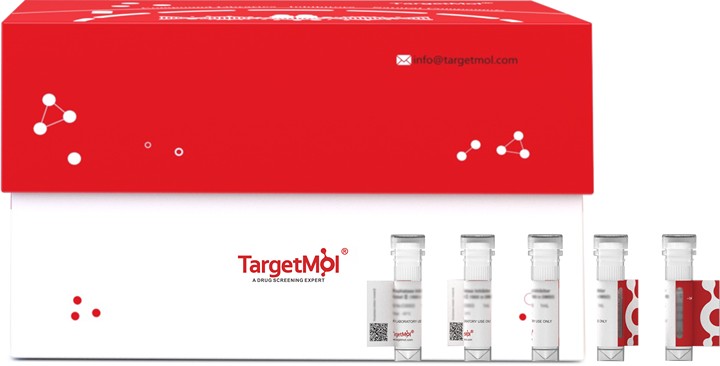Shopping Cart
- Remove All
 Your shopping cart is currently empty
Your shopping cart is currently empty

S100A8 Protein, Human, Recombinant (E. coli, His) is expressed in E. coli. The accession number is P05109.

| Pack Size | Price | Availability | Quantity |
|---|---|---|---|
| 100 μg | $588 | Backorder | |
| 1 mg | $3,880 | Backorder |
| Biological Activity | Measured by its ability to bind recombinant human S100A9 in a functional ELISA. |
| Description | S100A8 Protein, Human, Recombinant (E. coli, His) is expressed in E. coli. The accession number is P05109. |
| Species | Human |
| Expression System | E. coli |
| Tag | N-His |
| Accession Number | P05109 |
| Synonyms | S100-A8,P8,NIF,MRP-8,MRP8,MIF,MA387,L1Ag,CP-10,CGLA,CFAG,CAGA,60B8AG |
| Construction | A DNA sequence encoding the human S100A8 (NP_002955.2) (Leu 2-Glu 93) was expressed, with a polyhistidine tag at the N-terminus. |
| Protein Purity | > 95% as determined by SDS-PAGE |
| Molecular Weight | 12.2 kDa (predicted) |
| Endotoxin | Please contact us for more information. |
| Formulation | Lyophilized from sterile 20 mM Tris, pH 8.5, 10% glycerolPleasecontact us for any concerns or special requirements. Normally 5 % - 8 % trehalose, mannitol and 0.01% Tween 80 are added as protectants before lyophilization. Please refer to the specific buffer information in the hardcopy of datasheet or the lot-specific COA. |
| Reconstitution | Please refer to the lot-specific COA. |
| Stability & Storage | It is recommended to store recombinant proteins at -20°C to -80°C for future use. Lyophilized powders can be stably stored for over 12 months, while liquid products can be stored for 6-12 months at -80°C. For reconstituted protein solutions, the solution can be stored at -20°C to -80°C for at least 3 months. Please avoid multiple freeze-thaw cycles and store products in aliquots. |
| Shipping | In general, Lyophilized powders are shipping with blue ice. |
| Research Background | S100A8 is a member of the S100 protein family containing 2EF-hand calcium-binding motifs. S100 proteins are involved in the regulation of a number of cellular processes such as cell cycle progression and differentiation. Altered expression of S100A8 protein is associated with various diseases and cancers. S100A8 may have an immunoregulatory role by contributing to the regulation of fetal-maternal interactions. It may play a protective role and its absence may allow infiltration by maternal cells, a process eventually manifesting as resorption. The heterodimeric S100 protein complex S100A8/A9 which has been shown to be involved in inflammatory and neoplastic disorders. The complex can induce cell proliferation, or apoptosis, inflammation, collagen synthesis, and cell migration. S100A8/A9 has emerged as important pro-inflammatory mediator in acute and chronic inflammation. More recently, increased S100A8 and S100A9 levels were also detected in various human cancers, presenting abundant expression in neoplastic tumor cells as well as infiltrating immune cells. On the one hand, S100A8/A9 is a powerful apoptotic agent produced by immune cells, making it a very fascinating tool in the battle against cancer. It spears the risk to induce auto-immune response and may serve as a lead compound for cancer-selective therapeutics. In contrast, S100A8/A9 expression in cancer cells has also been associated with tumor development, cancer invasion or metastasis. Altogether, its expression and potential cytokine-like function in inflammation and cancer suggest that S100A8/A9 may play a key role in inflammation-associated cancer. |

Copyright © 2015-2025 TargetMol Chemicals Inc. All Rights Reserved.